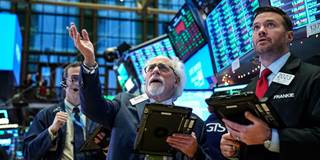In a world where “nobody knows anything,” investors may be no better than film-studio moguls at predicting the future. If so, then markets, instead of being predictive, become increasingly reactive, simply extrapolating recent events.
LONDON – If there is one useful conclusion that economists and investors can draw from the crazy year that has just ended – indeed, from the whole crazy decade since the Global Financial Crisis of 2008 – it is this: As they say in Hollywood, “Nobody knows anything.” In the film industry, the richest and most experienced studios and producers spend vast amounts of time and money on audience research, but still have no idea if their latest creations will turn out to be hits or flops. So why be surprised if the same is true of financial markets – or, for that matter, of commodity prices, policymaking, and corporate performance?

LONDON – If there is one useful conclusion that economists and investors can draw from the crazy year that has just ended – indeed, from the whole crazy decade since the Global Financial Crisis of 2008 – it is this: As they say in Hollywood, “Nobody knows anything.” In the film industry, the richest and most experienced studios and producers spend vast amounts of time and money on audience research, but still have no idea if their latest creations will turn out to be hits or flops. So why be surprised if the same is true of financial markets – or, for that matter, of commodity prices, policymaking, and corporate performance?